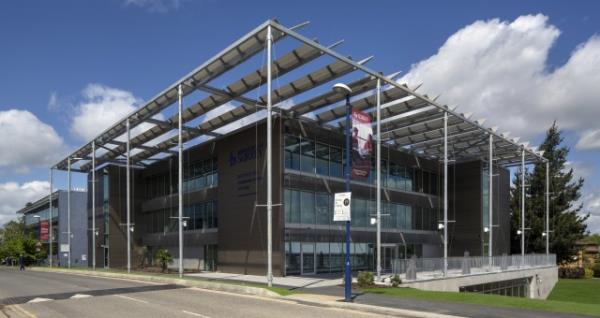11 July 2017
The University of Surrey's £80m 5G Innovation Centre is the largest UK academic facility dedicated to the development of the next generation of mobile and wireless communications.
Three universities in the UK will be linked via 5G testbeds for the first time following government investment worth £16 million.
The funding will create a 5G Hub that brings together Bristol University, King’s College London and the University of Surrey.
Research teams from the three institutions will work in partnership on the development of the world’s first trials of end-to-end 5G systems. It’s hoped their “cutting edge” R&D will keep the UK at the forefront of 5G technology.
Bristol University will implement 5G capability to the locally deployed smart city and Temple Quarter Enterprise Campus testbeds, targeting full 5G and fibre infrastructure convergence.
The university will also contribute to the key SDN technologies for end-to-end 5G service delivery. It will focus on public demonstrations that show the delivery of media, gaming and transport applications.
King’s College London is working on ultra-low latency 5G tactile internet developments with “Internet of Skills” applications. Through its 5G Tactile Internet Lab, the university is also said to be pioneering several important 5G co-design approaches with various industries, including smart cities, smart transport, performing arts and health.
The lab was launched last year as a joint initiative between the Centre for Telecommunications Research and Ericsson. Focusing on the ‘tactile’ or ‘haptic’ internet, work in the facility centres around using the internet to enable remote physical interactions. It’s claimed this will be a key feature of the Internet of Things or Skills.
The University of Surrey’s £80 million 5G Innovation Centre (5GIC) will lead the project. It will develop 5G radio technologies and a fully virtualised mobile core network at 3.5GHz and 700MHz for enhanced Mobile Broadband (eMBB) and Ultra Reliable Low Latency Communications (URLLC).
Initial end-to-end testing is expected to be carried out early next year across sites at the three universities. The hub will be integrated at the system level and will be ready for connection of external testbeds and applications across the UK.
“We already have a proven track record of developing, trialling and testing 5G technology here at the 5GIC, and this will see us grow that across the country to further develop and realise the end-to-end 5G,” said the centre’s director, Professor Rahim Tafazolli. “The testbed will benefit the UK’s 5G ecosystem by enabling trials of secure, interoperable technology and services, hardened against cyber-attack.”
Tafazolli described the hub as a “national asset” that can mobilise intense testing and trials for mobile broadband as well as other applications such as connected and autonomous cars, new games, connected health, amongst others.
In announcing the government investment at the end of last week, minister for digital Matt Hancock said: “This funding will support the pioneering research needed to ensure we can harness the potential of this technology to spark innovation, create new jobs and boost the economy.”










